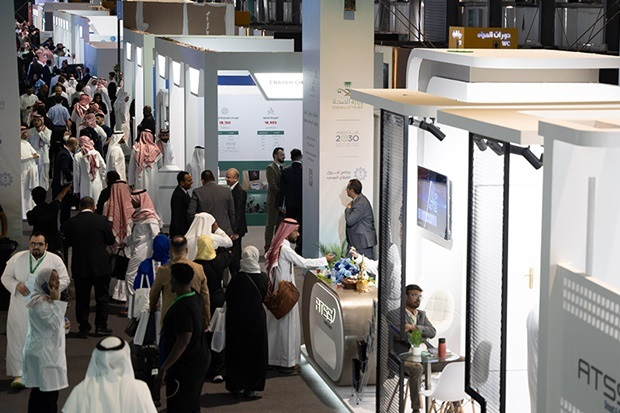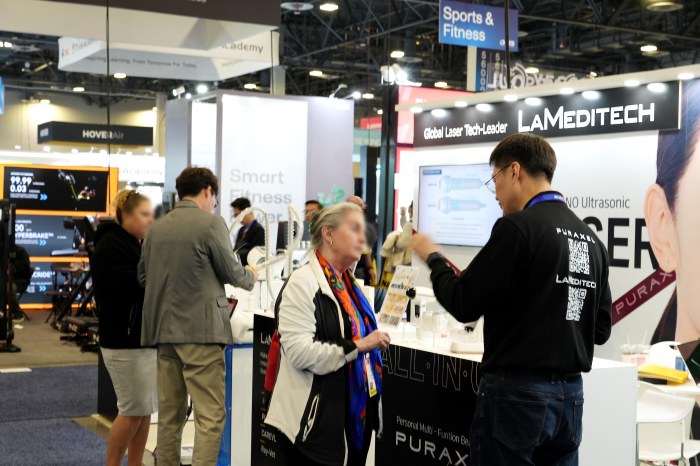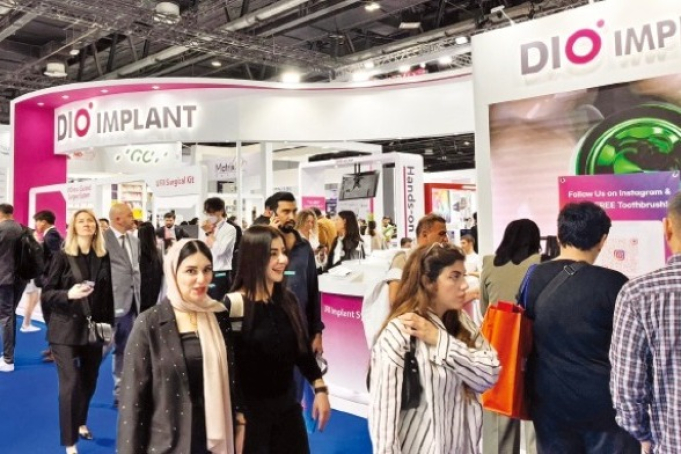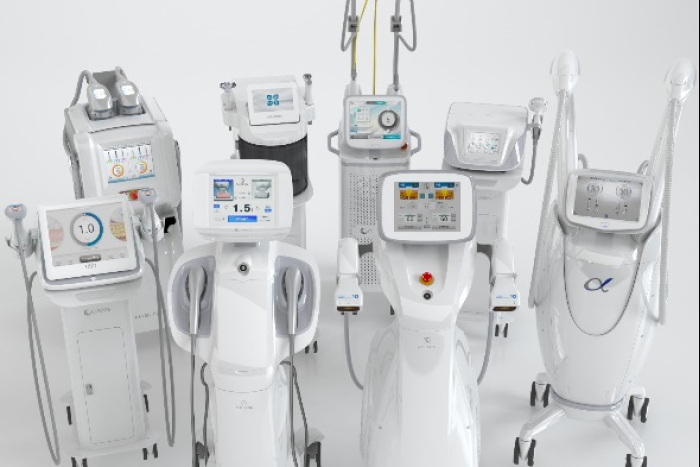
South Korea is making inroads into the Middle East’s medical device market dominated by the US and Europe, aiming to leverage the region’s strong purchasing power and big investments in building digital hospital infrastructure.
Korean developers of disease treatment, diagnostics and medical aesthetic devices are capitalizing on the global popularity of Korean culture and beauty products, as well as the region’s population growth.
With the Middle East relying on imports for more than 90% of medical devices, Korean companies are outshining Chinese peers, whose appeal has faded amid escalating trade rows between the US and China.
Last month, Remed Co., LaMeditech Co., Vuno Inc., Mediwhale Co. and Neurophet Inc. exhibited their products at Arab Health, a healthcare conference held in Dubai. It is the world’s largest healthcare device trade show.
During the conference, Korean medical device makers bagged a total of $4.17 million in supply contracts with companies from around 40 countries.
LaMeditech secured a large distributor in the Middle East for its skin disease treatment device Careveam at 2025 Arab Health.

The medical device market of Saudi Arabia and the United Arab Emirates (UAE) combined is forecast to expand to $3.95 billion in 2026, according to industry officials.
During the Medlab Middle East Global In Vitro Diagnostics Exhibition and the UAE International Dental Conference & Arab Dental Exhibition, Korean diagnostics developers such as SD Biosensor Inc., NGeneBio Co. and Sugentech Inc. showcased their products. The two exhibitions took place early this month.
“Over 1,000 visitors stopped by our booth for two days, showing strong interest in our products,” said a Sugentech official. The company opened a booth at the Medlab Middle East Global In Vitro Diagnostics Exhibition.
“We’re in serious discussions with more than 50 distributors.”
Lunit Inc. and Deepnoid Inc. have already exported AI-powered diagnostics devices to the Middle East, driven by the region’s push for smart hospitals.

Medical aesthetic device companies are also scurrying to secure their toehold in the Middle East. Won Tech Co. started selling Oligio, its flagship skin-lifting laser machine, in Dubai in November. Last month, the skin tightening machine maker obtained approval for an additional six products in the UAE.
Using the UAE as its springboard, Won Tech plans to penetrate other Middle Eastern countries.
QUALITY AND PRICES
According to the Korea Customs Service, four Middle Eastern countries – Saudi Arabia, UAE, Qatar and Kuwait – imported $79.2 million worth of medical devices from South Korea in 2024, up 88% from 2021.
“Thanks to their high quality and affordable prices, the demand for Korean medical devices is growing in the Middle East with the high income and strong purchasing power,” said a medical device industry official.
Once they establish their presence in the Middle East, they can further expand into Europe and Africa.

ENTRY BARRIERS
The Middle East still presents high barriers to medical device startups.
To qualify for exports to Saudi Arabia, medical devices must first obtain approval from the US, Japan and Europe. That would make it challenging for newcomers to target the Middle East as their first overseas market.
By Hyun-Ah Oh
5hyun@hankyung.com
Yeonhee Kim edited this article.















